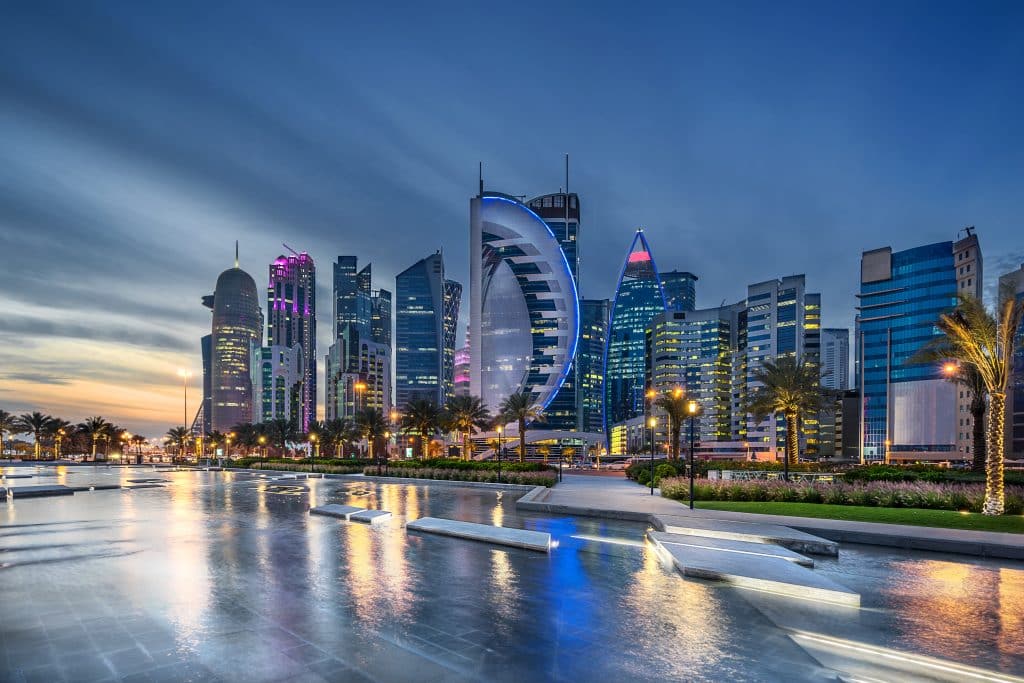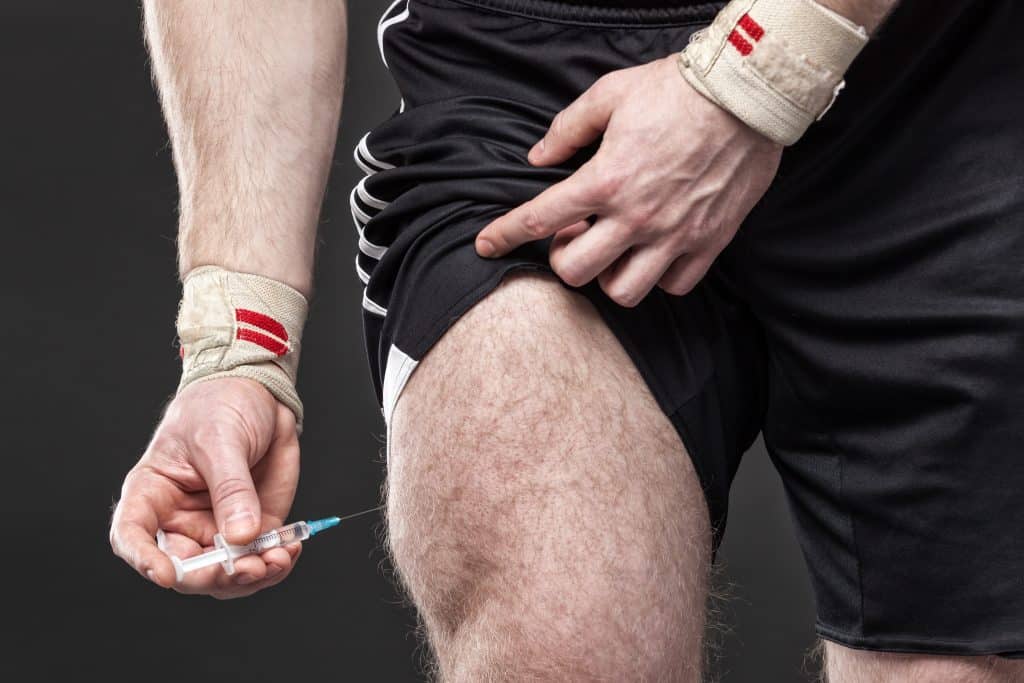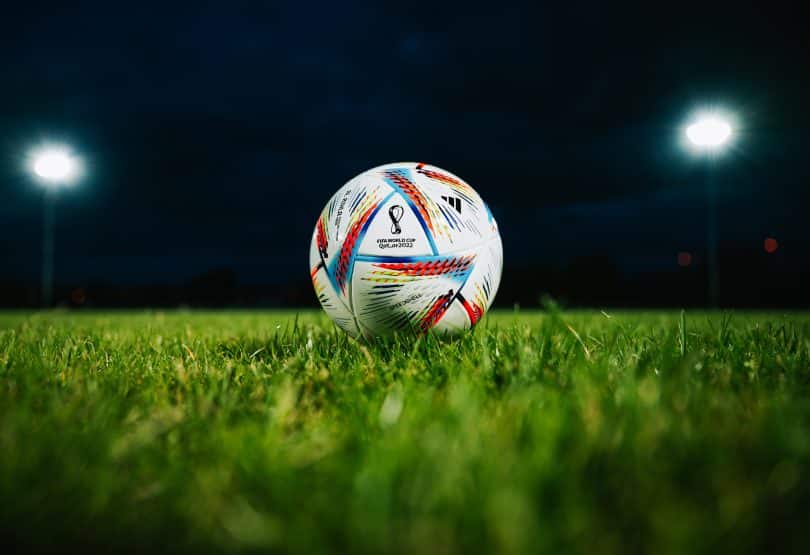The next World Cup is soon upon us. The international football tournament that just keeps giving. There will be speed, drama and unbelievable skill. The greatest footballers on the planet will be all competing for the top prize. However, there has been a great deal of controversy surrounding this world cup, primarily due to the host nation – Qatar – and its backward views on human rights.
With strict laws, fans travelling to cheer on their teams will need to be extremely careful – even a drop of alcohol in an unprohibited place could end with them behind bars. But the Qatar government is not the only one with rigid rules on substance use, Fifa and its anti-doping laws are also ruthless. Any player found with specific drugs in their body could face permanent exclusion from the sport. But how does it all work? We’re going to take a look. Let’s go.
Qatar World Cup 2022
The world cup is supposed to be the most awaited and longed for football event on offer, but this year’s seems tarnished by controversy and malpractice. It would be great if a football tournament could happen and the focus be solely on the sport itself, but yet again Fifa have proved that they’re objectives sit firmly in the money. Qatar, a small Gulf country with a population of around 2 million, has been heavily criticized for how they have dealt with world cup preparations.
6500 migrants have reportedly died in the speedy creation of stadiums, hotels and training facilities. Not only that, but their overall view on human rights – including LGBTQ+ people and women – is backward to say the least. It isn’t that other nations don’t have the same views, because of course they do, but it’s that these countries should then not be chosen to host a world cup. It’s as simple as that. Amnesty highlights the problematic laws in Qatar:

“Under the guardianship system, women remained tied to their male guardian, usually their father, brother, grandfather or uncle, or for married women, to their husband. Women continued to need their guardian’s permission for key life decisions… (AND) “Sodomy” or same-sex sexual conduct between men remained an offence under the Penal Code, punishable by up to seven years’ imprisonment.”
Nonetheless, the world cup is happening and – according to Fifa – we’re all supposed to ‘focus on football’. A very easy thing for a business monopoly with no feelings or threats to advise. But with Qatar having their own strict laws on illegal substances, we thought it would be interesting to see the kinds of rules that Fifa have themselves. Let’s take a look at their anti-doping strategy.
What is Doping?
Football, like any sport, is a highly competitive one. It is believed that 1% of kids that play football at school will join or be scouted by a professional team and – of those select few – around 1% again will actually make it professionally. In essence, it is near to impossible to become a football player. Plus, even those that make it are constantly under threat of losing their place in the team. It’s one thing to become a professional footballer, and it’s another thing to maintain yourself as one. Being a sportsman takes incredible passion, work ethic and natural ability. You have to be at the highest level possible. That is why, historically, many professionals have turned to doping for assistance. Science writes:
“Its origins can be traced as far back as the ancient Olympics, where competitors would drink ‘magic’ potions or eat special foods to gain an edge over their rivals. The desire to win, motivated by economic incentives… or social pressures… ensures there is a constant market for drugs that will improve performance.”
Doping is defined as using banned substances in order to boost your performance as an athlete. Performance enhancing drugs can give sports people that extra edge on their competitors. Here are a few examples of the kinds of banned substances that athletes have taken in the past:
Thanks for making your way over. Subscribe to our Cannadelics Weekly Newsletter for regular updates straight to your email, along with great deals on awesome merch including marijuana flowers, vapes, edibles, smoking devices, and cannabinoid compounds. Check through the options, and pick what works best for you!
Stimulants
Stimulants speed up the heart rate and boost energy. They fill the athlete with alertness, and make them more aggressive. These include: cocaine, ritalin and amphetamines. Nicotine and caffeine are also part of the stimulant drug family but these are not illegal.
Steroids
Anabolic Steroids can help athletes boost their muscle growth. By raising testosterone in the blood, the muscles are able to build faster and grow larger. Weight lifters and swimmers have been known to use these substances in the past.
Hormones
The Human Growth Hormone is a naturally-occuring substance in the body. It helps the growth of physical development. If an excess is taken, the drug can increase muscle, boost energy, and breakdown fat quicker. Lance Armstrong, the famous cyclist, admitted to doping these substances.
EPO
EPO – or erythropoietin – was another substance that Lance Armstong was known to take at Tour De France. EPO is produced by the kidneys but, again, can be taken in excess. The substance stimulates the production of red blood cells, which increases the amount of oxygen that is carried around the body. In essence, the entire body can work quicker and more effectively. \
Doping in Football
Interestingly, when it comes to football, there have been less cases of doping. Especially
when compared to athletics and cycling. However, there is just as much of a reason to make use of performance enhancing drugs. If used, it would have the same benefits: including increased energy, alertness and muscle mass. According to Fifa, over 33,000 doping tests were done in 2016, with 0.29% testing positive. This can be compared to 9 out of 5000 athletes testing positive in the 2012 olympic games. That is around 0.80%. There seems to be a sly belief that footballers are somehow allowed or able to hide it.

Arsene Wenger, the ex-Arsenal manager, came out and said that his team had played against many other sides using performance enhancing drugs. However, that’s not to say that doping hasn’t occurred. In fact, one of the world’s greatest – Diego Maradona – was excluded from the American 1994 world cup for using ephedrine. He was consequently banned from the US and has been unable to go back since. But, since this incident, there hasn’t really been as high a profile case. Some people believe that doping simply is not an issue in football, whilst others claim that Fifa are not doing enough to look into it.
Fifa Anti-Doping Laws
When it comes to doping laws, the World Anti-Doping Agency (WADA) is the national rulebook that the majority of the world abides by. Fifa adopted the World Anti-Doping Code, but was one of the last federations to do so. Before this, they preferred to deal with each incident on a case by case basis. With many tournaments happening internationally, it is pivotal that there is a consensus approach. Fifa writes:
“Whether it is fear of failure, bad advice by a coach or doctor, a need to speed up recovery, or simple ignorance, the results of doping in football are the same: players can not only lose their professional career and damage their personal reputation, they can also harm their physical and mental health for the rest of their lives.”
According to Fifa, the use of any banned WADA substance will lead to a ban. These substances are listed on their website. The length of this ban will depend on the intention behind it.
1 year or less – No significant fault or negligence
2 years – Taking the substance without intent to cheat
4 years – Intent to cheat
Life Sport Ban – Multiple occasions or multiple substances
It’s important to note that this includes coaches and staff, as well as the players. The aim is to maintain that any person involved in or around the football is checked. These tests – by urine or blood – can occur anytime and frequently. Fifa have the right to do this. If a footballer does test positive, then It is very hard to prove that they were not aiming to cheat, as the anti-doping laws are set in stone and are assumed to be known by everyone.
Conclusion
Doping in football seems to be far less common than many other sports. However, seeing as Fifa have been corrupt enough to allow a nation like Qatar to host the 2022 world cup, it wouldn’t be too far-fetched to imagine that they could also be hiding the doping of their athletes. But perhaps that’s too conspiratorial? But what do you think?
Hello and welcome readers! We appreciate you making it over to Cannadelics.com; where we work hard everyday to bring you fully-rounded coverage of the growing cannabis and psychedelics spectrum. Hang out with us regularly to keep up with everything going on, and sign up for the Cannadelics Weekly Newsletter, so you’re never late on getting a story.









